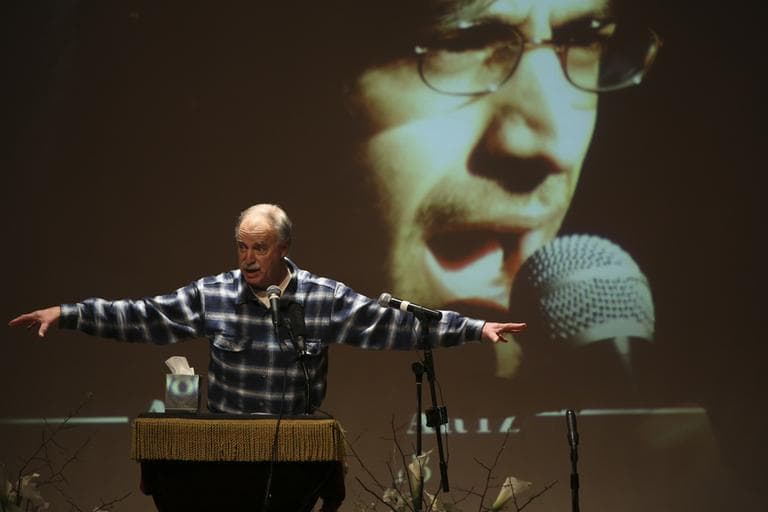Advertisement
Reforming Laws Used To Prosecute Aaron Swartz

Last night in Washington, D.C., family, friends and congressional supporters gathered to remember the late internet activist, Aaron Swartz, and to call for changes in the law that federal prosecutors used to prosecute him.
The 26 year old Swartz committed suicide last month as he faced multiple federal charges for hacking into an MIT collection of academic articles. Hundreds of mourners were on hand to remember Swartz — including his father, Bob Swartz, who said his son was "thrown into a system that is cruel and vindictive."
The prosecution of Swartz has put the Massachusetts U.S. Attorney Carmen Ortiz on the hot-seat. Her office prosecuted Swartz under a federal law known as the Computer Fraud and Abuse Act. Ortiz insists she enforced the law appropriately, but many supporters of Aaron Swartz disagree, and a congressional committee is demanding answers from the Department of Justice about the case. Several members of Congress attended last night's memorial and said they support a bill that would amend the Computer Fraud and Abuse Act. Among them was Senator Ron Wyden, an Oregon Democrat, who said, "When Aaron hacked, a poorly written criminal law called him a dangerous criminal. Common sense and conscience knows better, and we are going to change this unjust law."
So was the Aaron Swartz case an example of prosecutorial over-reach by an over-zealous prosecutor? Or was it the inevitable result of an overly broad and out-of-date law in need of reform?
Guests
Cindy Cohn, Legal Director and General Counsel for the Electronic Frontier Foundation
Harvey Silverglate, a criminal defense and civil liberties litigator and author of the book "Three Felonies a Day: How the Feds Target the Innocent."
Scott Burns, executive director of the National District Attorneys Association.
More
WBUR "Flowers and enlarged portraits of the young man who devised many ways to share knowledge and information online turned a stately Capitol Hill hearing room into a memorial hall. Many who loved and admired Swartz continue to blame his suicide on overzealous federal prosecutors in Boston."
L. A. Times "Aaron Swartz may change the Internet yet again, even in death, with the help of lawmakers who have expressed a fondness for breaking the law."
This segment aired on February 5, 2013.